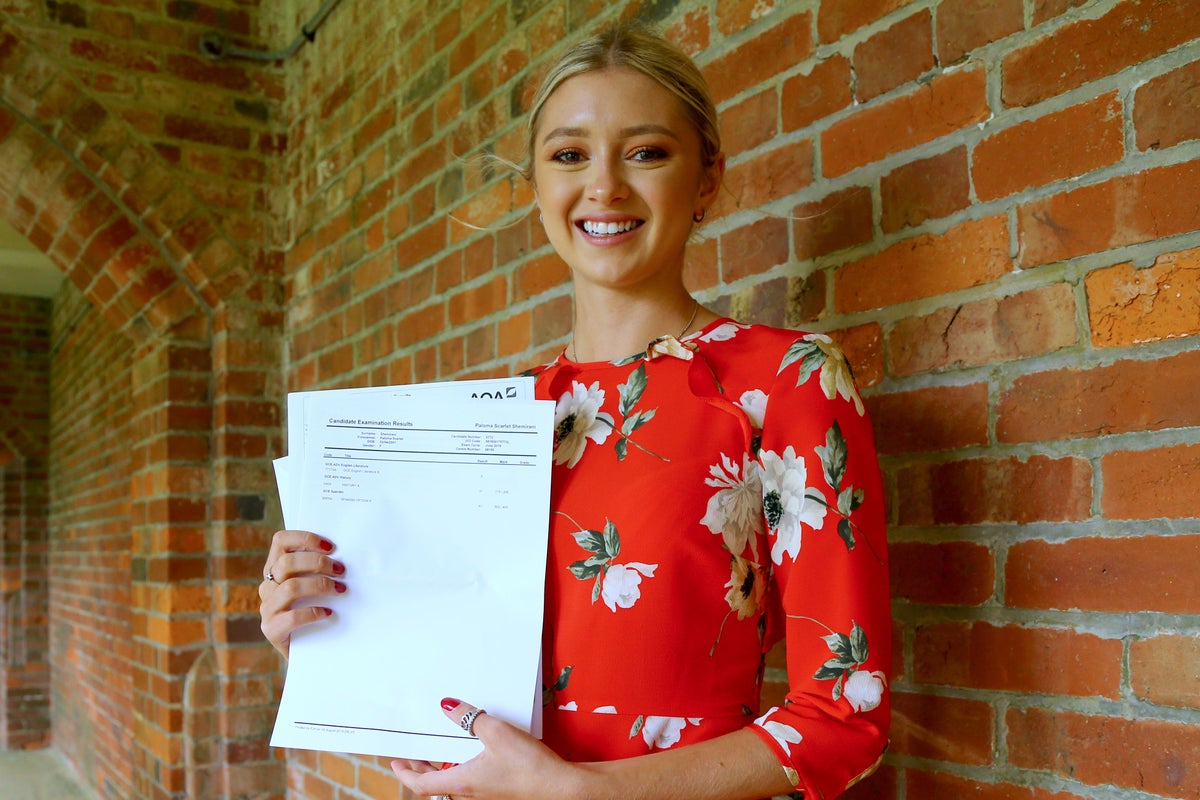
A Cambridge graduate who died after refusing chemotherapy was “adversely influenced” by her conspiracy theorist mother whose actions were “incomprehensible”, a coroner has found.
Paloma Shemirani, 23, collapsed on July 19 last year and was taken to Royal Sussex County Hospital where she died five days later.
She had earlier declined treatment for non-Hodgkin lymphoma and instead followed an “alternative” treatment plan including daily coffee enemas advised by her parents.
An osteopath who saw Miss Shemirani on the morning she collapsed said he had “never seen” a lymphoid mass like hers in 43 years of practice.
Her mother, Kay “Kate” Shemirani, a prominent online conspiracy theorist, and her father, Dr Faramarz Shemirani, who is “sympathetic” to his ex-wife’s views, tried to blame medical staff for their daughter’s death.
On Thursday at Kent and Medway Coroner’s Court in Maidstone, coroner Catherine Wood concluded that their influence on Miss Shemirani “more than minimally” contributed to her death.
Ms Wood said: “In December 2023, Paloma Shemirani attended the Maidstone Hospital and was found to have a large and bulky upper right side medicinal mass… There is no doubt that the mass was a non-Hodgkin lymphoma.”
Her mother questioned medical staff to the extent that the coroner found it “highly likely that she seeded some form of doubt in Paloma’s mind as to her diagnosis”.
Ms Shemirani was struck off as a nurse in 2021, and a Nursing and Midwifery Council committee found she had spread Covid-19 misinformation that “put the public at a significant risk of harm”.
“Mrs Shemirani took a leading role in advising Paloma in respect of and facilitating access to alternative treatments,” said Ms Wood.
After graduating from Cambridge, Miss Shemirani was working and living in a flat with a housemate and was “estranged” from her mother until her cancer diagnosis.
Ms Shemirani encouraged her to come back to the family home and took a leading role in Miss Shemirani’s alternative “treatment programme”, which involved daily coffee enemas and a strict diet, the inquest heard.
At the time of her diagnosis, doctors at Maidstone Hospital told Miss Shemirani she had an 80% chance of recovery through chemotherapy.
The coroner said: “It seems that if Paloma had been supported and encouraged to accept her diagnosis and considered chemotherapy with an open mind she probably would have followed that course.”
She later added: “If approached with an open mind, Paloma would have chosen the chance to survive, and if she had undergone chemotherapy she probably would have survived.”
Her mother claimed that Miss Shemirani “looked well” on July 19 2024, the day she collapsed.
An osteopath who saw her that day, Nick Gosset, said he could feel large lumps in her shoulder that went all the way up into her neck, but that she had refused any suggestion of a referral to conventional treatment.
“I felt I was presented with a young woman – and I’m not an expert in this, my field is biomechanics – a young lady who was in the last stages of a very difficult disease, and she had declined to engage with conventional treatment,” he said.
Miss Shemirani’s twin brother Gabriel Shemirani told the inquest “I blame my mother entirely for my sister’s death”, by “obstructing” his sister from receiving treatment.
Mr Shemirani alleged that he and his siblings “felt unsafe” around their mother and that she had been “emotionally distant” and physically abusive to them as children.
He further alleged during his evidence that his father was also physically abusive to him and his brother.
Outside the court, Mr Shemirani said the state had “failed” by not classing his sister’s death as an unlawful killing, despite recognising a breach in their duty of care.
It was noted in Miss Shemirani’s initial hospital admittance in autumn 2023 that she had “recently moved out of her mother’s house due to emotional and physical abuse including food restrictions” by doctors at Maidstone Hospital.
Texts and voice notes from her parents during her stay at Maidstone Hospital in December 2023 showed them advising her insistently to “discharge herself”.
Her father sent her messages saying “you must discharge yourself” and “you will politely say you want to go home now” once he had heard about her diagnosis.
Ms Shemirani also sent Miss Shemirani’s then boyfriend a voice note telling him to bring her to their family home and saying “she’s really not going to be going in or out of anywhere”, while she looked after her.
“Mrs Shemirani was asked whether this meant she was taking steps to manage and control Paloma’s treatment but she did not accept this,” said Ms Wood.
In April 2024, Miss Shemirani’s twin brother brought a High Court case to assess his sister’s ability to exercise her capacity to make medical decisions.
The case made slow progress, and while Miss Shemirani gave a witness statement saying she was making her own choices, she had said in a text that she was being “kept out” of the proceedings, the court heard.
The coroner noted the “striking” family dysfunction which had been “on display very publicly” during the inquest.
“The dynamics within the immediate family were complicated and dysfunctional at the time of Paloma’s death,” she said.
Ms Wood added that their behaviour in court had been “reprehensible” as they sought to blame medical professionals for their daughter’s death.
Miss Shemirani’s mother called her friend who was nearby, before dialing 999 the day her daughter collapsed, the inquest heard.
She was later taken to the Royal Sussex County Hospital in Brighton where she died on July 24 of an “unsurvivable brain injury” caused by her long cardiac arrest.
Miss Shemirani’s brothers were not told about their sister’s collapse until after her death.
Ms Shemirani and her ex-husband did not attend the conclusion of the inquest but gave “no valid reasons” that should halt proceedings, the coroner said.
